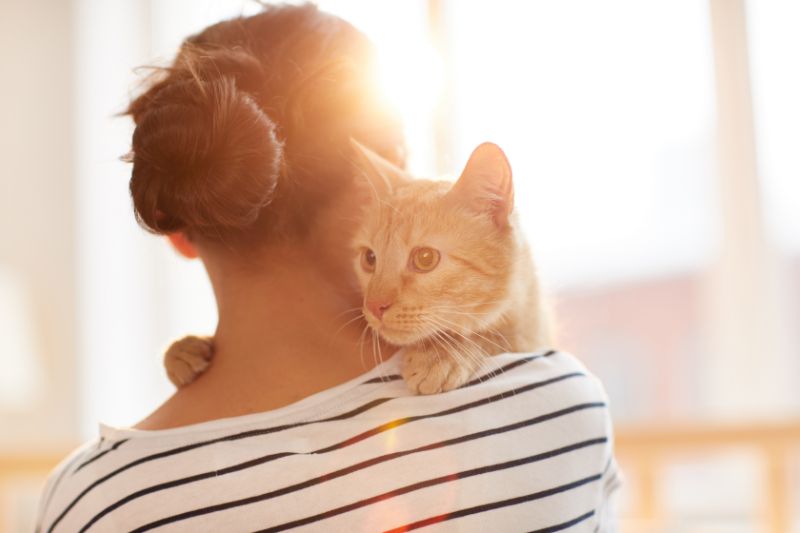Can Cats Get Separation Anxiety?
Most pet owners know that dogs can display negative behaviors like chronic barking and chewing when their owners aren’t around. This condition, coupled with changes in mood, is what is known as separation anxiety. Separation anxiety can also occur in our feline companions. This may come as a surprise to those who consider cats to be fiercely independent.
Your friends at Sunrise Boulevard Animal Hospital are here to explain why cats get separation anxiety and what you can do to help your whiskered friend from developing this.
What Is Separation Anxiety in Cats?
Separation anxiety is an aversion to being alone that is typically seen in dogs who have not been trained and socialized. It’s not entirely sure why cats develop the condition. There are several reasons that can be behind it, including health, interaction with the owner, early development, genetics, and other conditioning.
Most pets who have separation anxiety have developed an attachment to a person or place. Cats are highly territorial and their owner can become a sense of this territory. When they are absent, the cat can become distressed, anxious, and otherwise fearful.
This can lead to certain behaviors that can become destructive, such as:
- Vocalization
- Increased spraying and accidents
- Lack of appetite/weight loss
- Recurrent cystitis caused by stress
- Excessive self-grooming
- Vomiting
- Scratching at doors
- Overexcitement when owner returns
Ongoing stress can cause physical problems with your furry one, which is why it is important to identify the behaviors and have your pet examined.
Treating Separation Anxiety
Depending on the severity of the anxiety, most pets respond to changes in routine and behavior. Some cats require more intensive work with a behaviorist, but the condition can also be treated with certain medications and pheromone sprays, such as Feliway and Bach’s Rescue Remedy for Cats.
Some changes you can make at home include:
- Provide several places for your pet to hang out.
- Mental enrichment is important to keeping your pet occupied, so provide several toys and puzzles for your furry one.
- A cat perch with a window view can be a great incentive home alone time.
- Some cats are soothed by a radio or television left on during the day.
- Hire a pet sitter to come in and play with your cat while you are gone.
- To avoid scratches on furniture and doors, make sure there are many scratching pads and posts in the home.
- Provide clean litter boxes in more than one place to avoid accidents.
Supplements like valerian and skullcap can be very helpful as well.
Learn More About Why Cats Get Separation Anxiety
If your pet is displaying symptoms of separation anxiety, please call us. During their wellness examination, we can discuss with you some options in encouraging a happy, healthy, and less anxious kitty.

